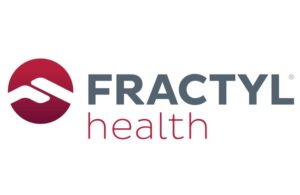 Fractyl Health this week announced encouraging interim feasibility data from its diabetes reversal technology study.
Fractyl Health this week announced encouraging interim feasibility data from its diabetes reversal technology study.
Lexington, Massachusetts–based Fractyl’s Revita-T2Di long-term open-label cohort assessed eight patients followed through at least four weeks having been treated. The company’s Revita system resurfaces the upper intestine lining (duodenal mucosa) to treat metabolic disease in patients with insulin-treated type 2 diabetes.
In March, Fractyl won FDA breakthrough device designation for the Revita DMR procedure. Through the procedure, the company aims to minimize or eliminate the need for type 2 diabetes patients to receive insulin treatment.
According to a news release, the eight patients observed demonstrated no adverse events of special interest and all have discontinued insulin therapy in the initial follow-up period.
The T2Di cohort included 10 total subjects, with one found to have an intercurrent condition, leading to exclusion at the time of endoscopy. Nine subjects were therefore treated with Revita and all nine procedures were successfully completed, with an average procedure time totaling less than one hour in the outpatient endoscopy.
In the nine treated subjects, there were no device- or procedure-related serious adverse events or adverse events of special interest. One subject who did not tolerate empagliflozin therapy withdrew from the study for reasons not related to Revita. As of Jan. 10, 2022, 100% of the eight patients remain off insulin and any other anti-diabetic agents they were prescribed prior to enrollment, except for metformin and empagliflozin.
“These encouraging early results from our Revita-T2Di cohort build on our earlier clinical experience with Revita in nearly 300 patients, including the earlier Inspire pilot study testing Revita to help improve glucose control and eliminate use of insulin,” Fractyl CMO Dr. Juan Carlos Lopez-Talavera said in the release. “We are encouraged by the technical success and patient tolerability profile we have seen thus far and impressed by the excellent clinical management of the patients at treating centers.
“While we do not expect that all patients will be able to successfully discontinue and remain off long-acting insulin therapy, we are encouraged by the initial experience thus far in this cohort and look forward to providing additional data as well as long-term comparisons to matched controls.”

